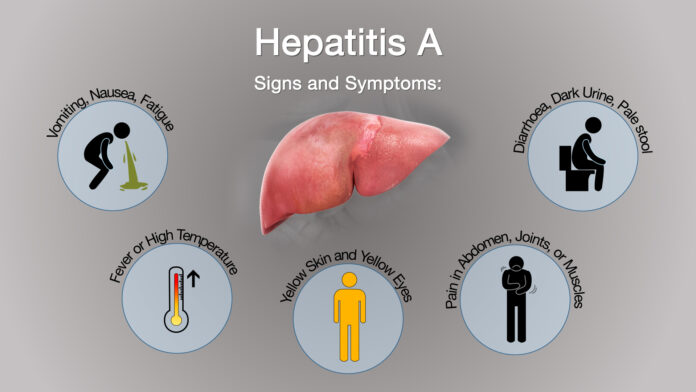The hepatitis A virus, which causes hepatitis A, infects the liver (HAV). Ingestion of tainted food or water or intimate contact with an infected individual are the two main ways that the virus is typically spread. The causes, signs, and treatments of hepatitis A are listed below:
Causes:
1- The cause of hepatitis A is the Hepatitis A virus (HAV).
2- The virus is often discovered in the faeces of infected individuals and can be transmitted 3- through tainted food or water, close contact with an infected individual, or both.
4- The virus may spread more readily in settings with poor sanitation and hygiene.
Symptoms:
1- Many hepatitis A patients have minimal or no symptoms.
2- Fever, exhaustion, lack of appetite, nausea, vomiting, stomach discomfort, dark urine, and yellowing of the skin and eyes are some of the mild to severe symptoms (jaundice).
3- After being exposed to the virus for two to six weeks, symptoms typically appear.
Treatment:
1- Hepatitis A has no specific treatment.
2- The goal of treatment is to reduce symptoms while promoting the body’s natural healing process.
3- Usually advised include rest, a healthy diet, avoiding alcohol and drugs that can harm the liver, and getting enough sleep.
4- Hospitalization may be required in serious situations.
Prevention:
1- Being vaccinated is the most effective strategy to avoid Hepatitis A.
2- The virus can be stopped from spreading by following good hygiene habits including washing your hands.
3- Avoiding tainted food and water is also crucial, especially when visiting places with a lack of sanitary facilities.
It’s critical to consult a doctor if you think you may have been exposed to hepatitis A or if you are showing signs of the virus.

































